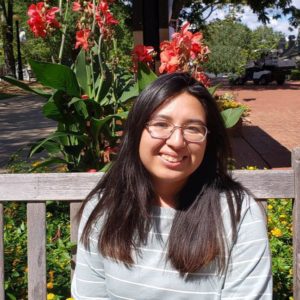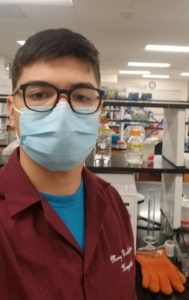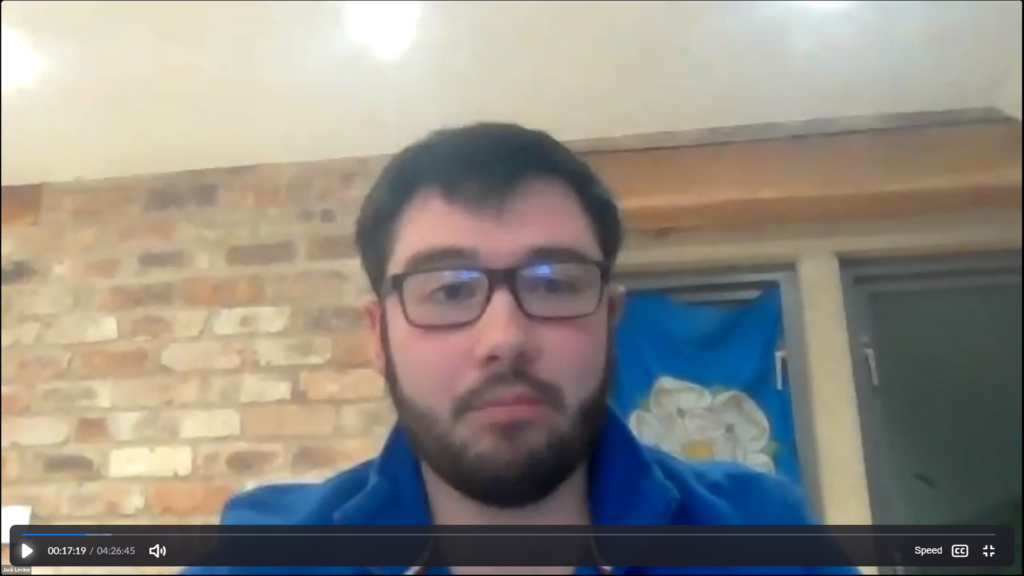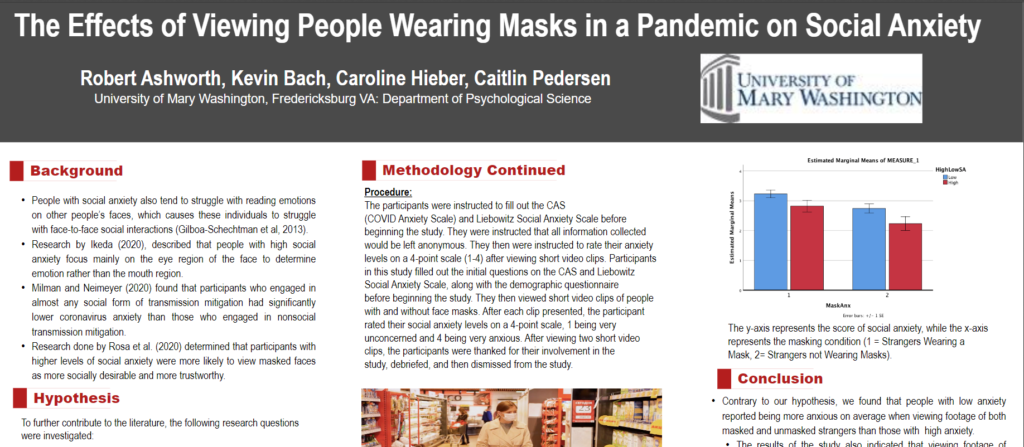Despite the challenges that Fall 2020 posed for UMW students and faculty, including strict protocols about in-person contact in classrooms and labs as well as restrictions on travel, UMW was able to continue its commitment to student learning and to fostering undergraduate research and creativity. Many students and faculty across the university pursued individual and team research projects and shared their results at virtual end-of-semester events.

The College of Arts and Sciences funded 16 student research projects from the departments of Biology, Earth and Environmental Sciences, History, Mathematics, and Political Science. Their topics ranged from “Estimated 2020 CO2 Emission Reductions in Virginia from COVID-19” (Eden Rakes, Earth and Environmental Science) to “Western Influences in the Eradication of Footbinding during the Late Quig Dynasty, 1850-1912” (Katie Molina, History and American Studies). Students received money for supplies or for online conference fees.
Earth and Environmental Science major Alison Grant, mentored by Dr. Pamela Grothe, worked on her project titled “Legacy of Redlining on Urban Heat in VA Cities.” She continued analyzing data collected during the 2020 UMW Summer Science Program. She attended the American G

eophysical Union’s virtual Fall 2020 meeting, where she presented a poster of her research and she was a panelist for press conference discussing the unequal impacts of heat, pollution, and climate change. Grant’s research was cited in an article in the E&E News: “Climate Racism is Real. Researchers Found It in U.S. Cities.”
Honor’s Program student and biology major John Asmus, mentored by Dr. Swati Agrawal, received funding for supplies for his project titled “Toxoplasma gondii SUB4 Gene Deletion Mutants and Their Viability in Host Cell Invasion.” His research is attempting to interrupt host cell invasion by the T. gondii parasite (responsible for the disease toxoplasmosis) by creating gene knockout mutants using CRISPR-cas9.
The UMW Honor’s Program hosted its 2020 Senior Capstone Fall Symposium via Zoom on December 4. Among the thirteen student presentations was a presentation by Economics major Jack Levine on his project titled ““UK Food Insecurity: The Effect of Income Fluctuations on Food Expenditure” mentored by Dr. Amrita Dhar. Levine’s research focused on the driving forces of food insecurity in the UK resulting from increased economic uncertainty over Brexit and the world in a Covid-19 recession. He delivered his paper from the U.K., since Jack is also an international student.

The Department of Psychological Sciences hosted its Fall Psi Chi poster session virtually too. 89 students created posters and recorded oral presentations of their research from three sections of Psychology 362: Research Methods led by Dr Mindy Erchull and Dr. David Stahlman, as well as in the research seminar courses 411 and 414 led by Dr. Miriam Liss and Dr. Holly Schiffrin. Some of the project topics included “How TikTok Videos Affect Women’s Body Image” (Simone Levendosky, Kristina Rigsby, Haleigh Eason, & Rachel Thibodeau; mentored by Dr. Mindy Erchull) and “The Effects of Viewing People Wearing Masks in a Pandemic on Social Anxiety” ( Robert Ashworth, Kevin Bach, Caroline Hieber, & Caitlin Pedersen; mentored by Dr. David Stahlman).

Leave a Reply